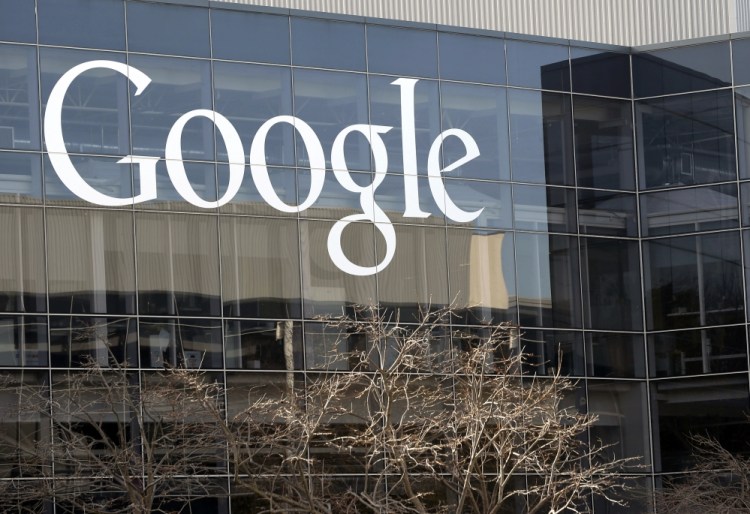Google, one of the best-known brands on the planet, on Monday radically restructured itself under the corporate name Alphabet, an almost unprecedented shift that reflects the company’s far-reaching ambitions and the vast Web it helped evolve.
The move represents Google’s biggest push yet to transcend its roots in the simple but highly profitable business of Web search and turn the company into a multifaceted General Electric for the digital age.
In the new organization, Google’s core business, which handles two out of every three Web searches worldwide, will be a single division that will also include video giant YouTube and smartphone system Android, as well as maps, ads and apps.
Other businesses in the $444 billion empire will be separate divisions under the everything-company Alphabet, investing in anti-aging research (Calico), the Internet of Things (Nest’s “smart” home thermostats), delivery drones (Project Wing), ultrafast Internet (Fiber), futuristic headsets (Glass) and driverless cars.
The unexpected change marks a speedy and potentially risky shift for the Web colossus whose name years ago became a verb, upending a corporate-America playbook that has preached reshufflings should be done dodderingly, if at all.
But Google executives said the “birth of Alphabet” meant far more than corporate wordplay and would instead mark both the start of “a very exciting new chapter in the life of Google” and the dawn of a strengthening push for the future Web.
“This new structure will allow us to keep tremendous focus on the extraordinary opportunities we have inside of Google,” Larry Page, Google co-founder and Alphabet chief executive, wrote Monday in a post revealing the change.
“We’ve long believed that over time companies tend to get comfortable doing the same thing, just making incremental changes,” Page wrote. “But in the technology industry, where revolutionary ideas drive the next big growth areas, you need to be a bit uncomfortable to stay relevant.”
The tech giant, one of the world’s most valuable companies, has invested heavily in the software, systems and infrastructure needed to keep its constellation of profitable breakthroughs connected.
But it has also helped finance innovations outside the walls of its Mountain View, Calif., headquarters – the Googleplex – by financing start-ups and swelling corporations though its investment arms, Google Ventures and Google Capital.
Many of Google’s boldest innovations have arisen from its enigmatic research lab, Google X, including Contact Lens, a pair of glucose-measuring lenses for people with diabetes, and Project Loon, a swarm of high-flying balloons that could deliver Internet to the world’s most remote locales.
But it has struggled to escape the orbital pull of the Google brand, which first whispered onto an infant Internet in 1998, the brainchild of two Stanford University students with the mission to catalogue the world’s information.
Google’s sweeping expansion has not undermined its prime moneymaker, search, which has helped the company blast toward $60 billion in yearly revenue.
But the unpredictable focus has led some investors and analysts to call for a narrower streamlining of its side projects, particularly when compared to titans such as Apple and Facebook, whose innovation has often served primarily to funnel users to its core enterprise.
Some analysts who raised concerns about Google’s growth also wondered how well the differing businesses would get along. Brian Wieser, a senior analyst with Pivotal Research Group, questioned how Alphabet’s collection of disparate businesses would compete for capital, particularly when comparing ventures with vastly different markets and odds of success.
“Google is trying to provide incremental transparency in their business profiles,” he said, “but whether that is sufficient to make a difference remains to be seen.”
Google’s co-founders, Sergey Brin and Eric Schmidt, will become Alphabet’s president and executive chairman, respectively. Sundar Pichai, Page’s soft-spoken deputy and Google’s senior vice president, will become the search subsidiary’s chief executive.
Alphabet will remain a public company, replacing the Google name in trading and in shareholders’ portfolios (but not its symbol on Nasdaq, which will stay as GOOG and GOOGL). Shares in the company surged nearly 6 percent in after-hours trading.
There are risks involved with such a sweeping makeover, including in the details. Page said executives chose the name Alphabet because it “represents language, one of humanity’s most important innovations.”
Yet the company could not secure Alphabet.com, which is a domain name owned by the carmaker BMW. The main site for the new company, instead, is abc.xyz, and its Twitter handle is @alphabetinc.
The Alphabet mega-umbrella also was seemingly unable to secure the Twitter handle @alphabet, which has instead been run since 2007 by a Cleveland “dad, husband and self-proclaimed geek.”
His tweet after the news broke: “Well, that was an interesting way to end a Monday …”
Send questions/comments to the editors.


